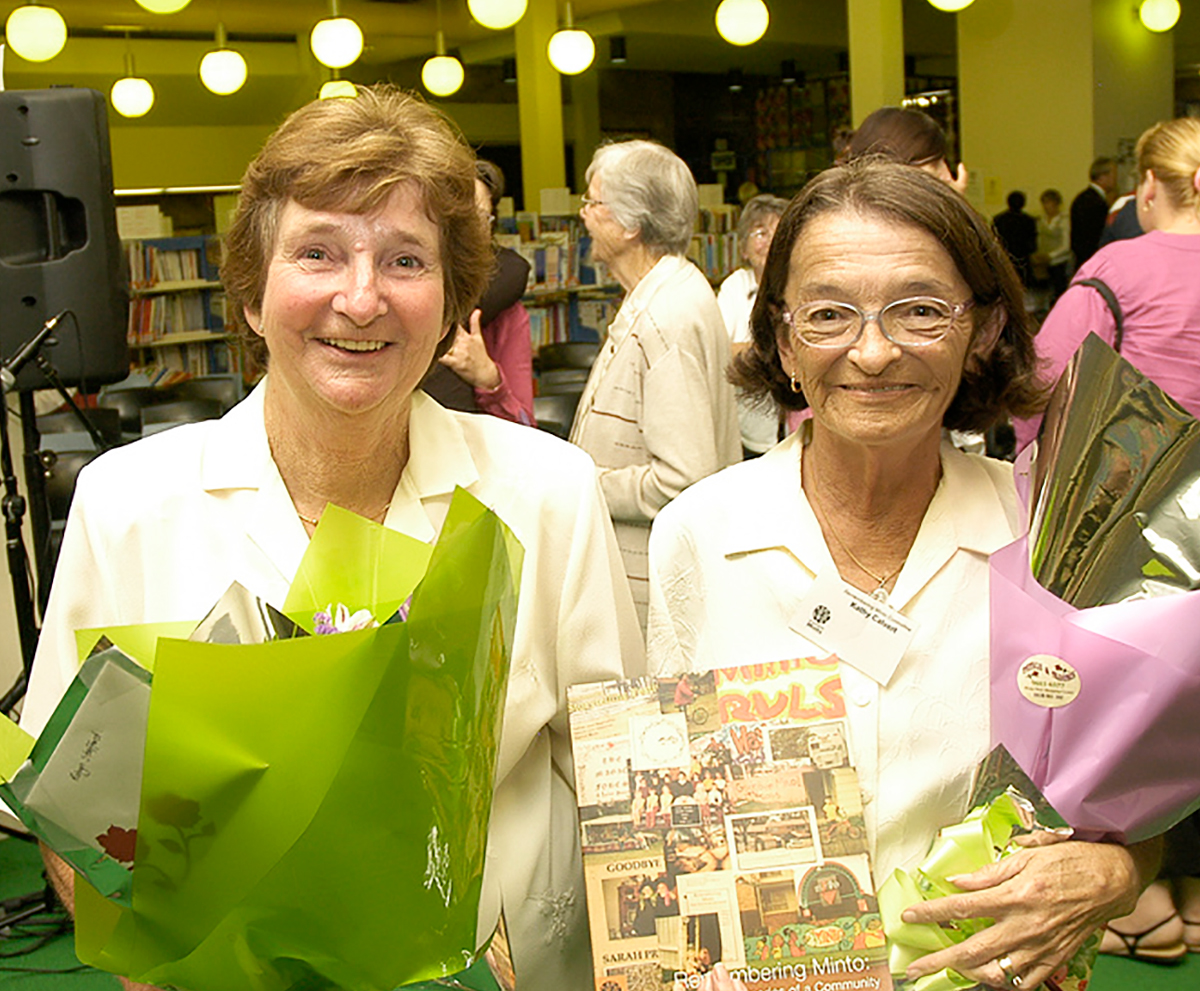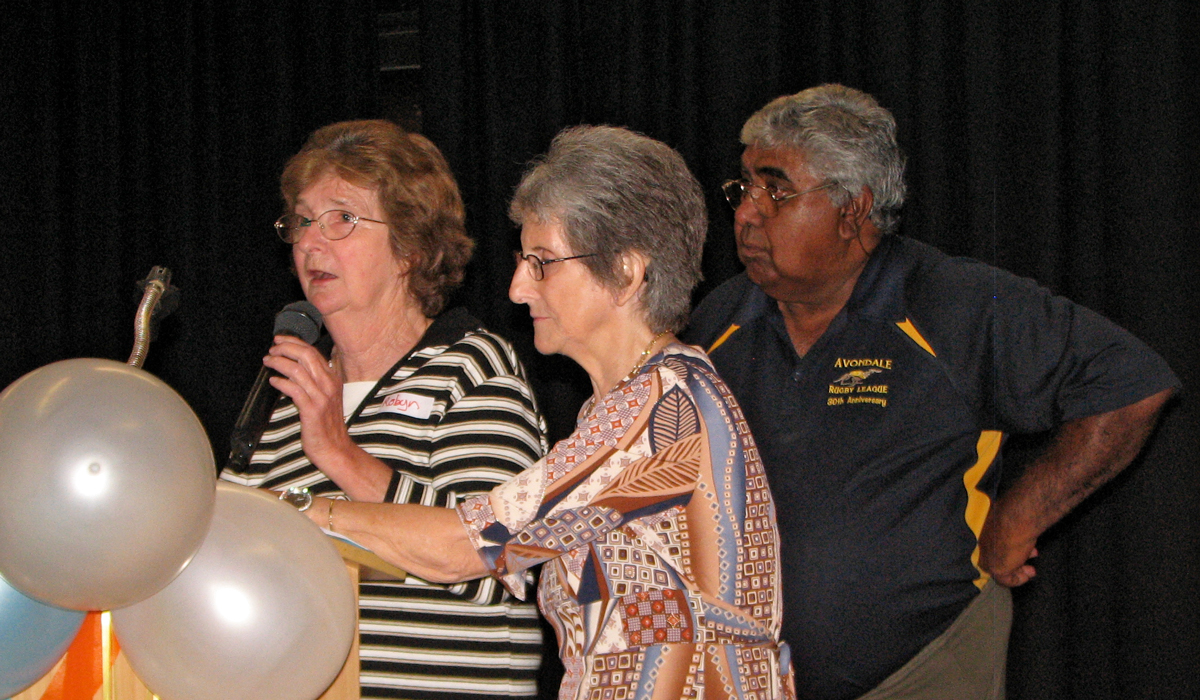More than bricks and mortar
08/03/2016

Robyn Stafford lives in Minto, a suburb in south western Sydney. She has experience as a tenant who has been through a redevelopment process in public housing. She has been active in working alongside other community members to improve tenant outcomes from the redevelopment process.
Redevelopment of public housing is a topical issue with the announcement of the social housing strategy by Minister Brad Hazzard in late January. This strategy will see the redevelopment of over 20,000 social housing units. So our Executive Officer, Julie Foreman, interviewed Robyn and asked her to share her experience and learning.
Tell me about Minto?
I love the Minto Community. The public housing community of Minto has gone, as most of the original tenants have moved on; some of the families went before the redevelopment and have bought their own places. I worked at the Post Office in Minto Mall until I retired 11 years ago so I am lucky that I knew, and still do, people from every area. Minto is a very diverse community; we have the rich, the poor, the in-betweens (young families trying to make a living and buying their own homes). It is also very multicultural with people from many nations living in our midst.
As part of the renewal I was moved over to Campbelltown for six years. I was lucky enough to be successful in the housing ballot and came back to a brand-new two bedroom home in 2011. To be honest I am not that fussed about living where I do – once I put my car in the garage nobody would even know you’re here. I say hello to neighbours but don’t really know them. The fences are so high you can’t even be sociable over the back fence. This is different to when I lived in Minto before the redevelopment.
How did you find out about the redevelopment of Minto? How long was it expected to take?
I actually found out about the redevelopment on the 6pm news on TV on 29 May 2002 – the date is etched in my memory. I saw Dr Andrew Refshauge, then Minister for Housing, standing up on the hill addressing the media about demolishing all of the townhouses in Minto and that it was a ghetto – I couldn’t believe what I was hearing! Yes, parts of Minto did need attention but it was not a ghetto. I had recently had my townhouse inspected and I was to have some work done and an upgrade of my kitchen so for that, I was excited. Officially I received my notification from Housing NSW the following day via a letterbox drop.
The redevelopment was expected to take about 10 years initially but there were four Housing Ministers before the masterplan was even signed. Some of the residents in the first precinct “Valley Vista” were moved out within the first two months. When it came to the second precinct, my precinct “Sarah”, we were able to advocate for it to be put on hold for 12 months. After the masterplan was approved the completion time was put back until 2015 and now that has been extended until the end of this year (2016).
The plans have continued to change. At first we were informed that there would be no three bedroom homes built and instead we were to get 104 two bedroom homes and 120 senior / over 55s units. That changed too – the two bedroom stand-alone houses were not viable so now three bedroom cottages are being built on the remaining lots. The small units have generated issues, which are caused by living so closely together without the necessary government or community supports. You can’t just throw people together – especially when some have complex needs – and expect a community to form.
What was the impact of the redevelopment on the community and on you?
We were devastated and watched in awe at the speed that the first lot of residents were moved out. People were wandering around bewildered. The lack of information and understanding led to fear and stress and if I am honest led me to take early retirement. Some people took the opportunity to move to coastal areas and we were all told we could come back. Those who wished could put their names on a return to Minto list.
Apart from our own individual stories there was the bigger picture. Due to dislocation and the population dropping, the schools in our area lost services – they have picked up again now – and our shopping mall went downhill badly. At times it was like living on a building site. And many friends moved away. It was hard to believe that 800 people were going to be dislocated and no social impact study was going to be undertaken.
Gradually things have improved again, the mall has had a facelift and been renamed as Minto Marketplace. Life in Minto is good. The carparks are full, the community is vibrant and everybody is smiling.
During the difficult times community members met together, and did their best to keep each other informed and supported. Not long after the announcement the Minto Residents Action Group (RAG) formed. We worked alongside
non-government organisations like St. Vincent de Paul Animation Project, South Western Regional Tenants Association, Shelter NSW and too many more to name individually. Along with these NGOs, residents and the wonderful Franciscan Friars who lived within our community, the Macarthur Housing Coalition was formed and we were successful in lobbying Housing NSW for an independent Tenant Advocate. Together these groups and Housing NSW came up with guidelines that have been used in a lot of the estates that are undergoing renewal.
What does living in public housing mean to you? What difference has it made in your life?
I have lived in public housing for 48 years. My husband, myself and our three children moved into a brand-new house in Ashcroft – back then the Housing Commission and Rural Bank had this agreement that you could purchase your home for $150 deposit and pay it off over 30 years. Unfortunately we did not have the deposit as wages were not that good back then. My husband passed away leaving me with four children so I regret that my chance to purchase my own home had gone. Later I moved to Minto and had my fifth child. I think living in social housing is secure – you do not have to worry whether the owner wants to sell!! (Ha! well at least public housing did set us up in other accommodation).
What projects or organisations are you involved in?

Since retiring back in November 2004 I spent a couple of months at home, just attending Minto RAG. Then one day Kevin Goode (a Franciscan Friar) came to my door and asked me if I would go with a few people to meet with then Housing Minister Joe Tripodi. I went to that meeting, and that same afternoon I attended the Community Reference Group meeting and became a regular member. I was a member of “Remembering Minto Committee”, Macarthur Housing Coalition and South Western Regional Tenants Association (SWRTA). I still volunteer at SWRTA two days a week. I have been the Secretary of Minto RAG since 2009.
I was also part of the Kids Community Park Committee. After finding out that our original park was deleted from the plans we were successful in having another park renamed Kids Community Park and a small plaque was erected commemorating the mural which was painted by the children. There is also a plaque commemorating the contribution of the Franciscan Friars and Sisters Kerry and Patricia who lived in the community. For 10 years I also volunteered (one day a week) for Myrtle Cottage, Ingleburn – a daily respite centre.
Robyn's tips for public housing redevelopment projects
Below, Robyn provides some advice for decision makers and tenants who are embarking on new redevelopment projects in public housing.
Decision makers
COMMUNICATION – talk to the people it mostly impacts on. Don’t be afraid of them or their ideas
and concerns.
SHOW COMPASSION – how would you feel if you were uprooted from your home with no real control over the time to move and where to move to?
Some practical things to think about:
- Have alternative accommodation ready for the elderly so people do not have to move twice.
- Ask who wants to move and start with them first.
- Keep residents informed and updated on plans.
- Come up with a different solution for single unit complexes. Without the right supports young people with mental health issues and the elderly do not mix.
- Make sure there are community facilities such as parks, community centres and meeting rooms available in unit complexes.
- Try not to move the elderly as most have lived in their places for years and raised families there, so it is the family home. When implementing a redevelopment project try to understand that when older, long-term tenants were originally allocated their house they were told it was for life and to “ treat it like your own”. They put in their own floor coverings, blinds, fans and air conditioners. Some even put up fences and sowed the seed for their lawns. Their heart and soul has gone into their family home.
Tenants
- Do not talk to relocation officers on your own.
- Look around you – what do you have that you would like in your new place? Things like screen doors and window security locks are not always guaranteed.
- Make a list – negotiate.
- Have you purchased your own ceiling fans or air conditioner – did you have permission to install them? Even if you haven’t – do you have receipts from an authorised installer? These can be relocated with you or you may get new ones.
- These days Housing tries to match your needs to a house so make sure they know your needs – doctors, hospital, public transport, shopping and family.
- Get medical certificates from your doctors to confirm your needs.
- When you go to look at new places, take someone with you – check each room for adequate power points – negotiate.
- Write a list of everyone who needs to be updated with your new address (this can be a big job).
- Remember you are not alone; seek support from organisations and your community. Ask questions and negotiate.
- Be warned a lot of people get letters of termination and rental arrears when they are relocated. These need to be dealt with straight away and most are human error – like a relocation officer not pressing a button to finish off your account at the address you moved out of.
- Remember you are entitled to two weeks rent credited to your new account while you are moving




